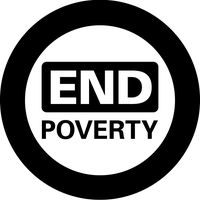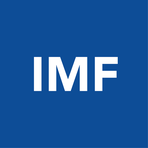Argentina's Financial Leap: A Gamble on Stability
April 12, 2025, 4:10 pm

Location: United States, District of Columbia, Washington
Employees: 10001+
Founded date: 1944
Total raised: $530M

Location: United States, District of Columbia, Washington
Employees: 1001-5000
Founded date: 1959
Total raised: $25.7M

Location: United States, District of Columbia, Washington
Employees: 1001-5000
Founded date: 1944
Total raised: $33.23M
Argentina stands at a crossroads, balancing precariously between economic revival and potential chaos. The recent announcement of a $20 billion deal with the International Monetary Fund (IMF) and a supplementary $12 billion financing package from the World Bank marks a significant pivot in the nation’s financial strategy. This bold move comes as Argentina dismantles years of stringent currency controls, a decision that could either rejuvenate its economy or plunge it deeper into turmoil.
The backdrop is a country grappling with a history of economic instability. Inflation has been a relentless adversary, gnawing at the purchasing power of everyday Argentines. The peso, once a symbol of national pride, has been battered by years of mismanagement and external pressures. Now, with the IMF deal in hand, the government hopes to stabilize the currency and restore confidence among investors.
The IMF's Extended Fund Facility agreement is not just a lifeline; it’s a double-edged sword. The immediate disbursement of $12 billion is a shot in the arm for Argentina’s depleted foreign reserves. However, the terms come with strings attached. The IMF expects Argentina to maintain a strong fiscal anchor and transition to a more flexible monetary regime. This means that the peso will no longer be shackled to a fixed exchange rate. Instead, it will be allowed to float within a band, potentially weakening by a third if market forces dictate.
This shift is monumental. It signals a departure from the "cepo," the capital controls that have stifled economic activity since 2019. Businesses will now have the freedom to repatriate profits, a move that could entice foreign investment. Yet, this newfound freedom comes with risks. The peso's volatility could send shockwaves through the economy, especially as Argentina approaches midterm elections later this year.
The government, led by President Javier Milei, has framed these changes as a necessary evolution. In a televised address, Milei expressed optimism, stating that Argentina is better positioned to weather external shocks. However, skepticism lingers. Economists warn that lifting currency controls amid global trade tensions could exacerbate existing vulnerabilities. The IMF itself has cautioned that "downside risks remain elevated," highlighting the fragility of Argentina's social and economic landscape.
The timing of these reforms raises eyebrows. With the world still reeling from the impacts of geopolitical strife and inflationary pressures, Argentina's decision to loosen its grip on the peso seems like a high-stakes gamble. The potential for a significant devaluation could ignite public unrest, especially among a populace already weary from economic hardship.
The financial packages from the World Bank and the Inter-American Development Bank are crucial. They provide the necessary support to bolster Argentina's reserves and stabilize the economy. However, the success of these measures hinges on the government's ability to implement reforms effectively. The road ahead is fraught with challenges, including rising inflation and a volatile political climate.
As Argentina embarks on this new chapter, the stakes are high. The nation is betting on its ability to attract investment and restore economic stability. The hope is that these financial lifelines will catalyze a broader recovery, allowing Argentina to reclaim its place in the global economy. But the specter of past failures looms large. The IMF deal marks the 23rd program in a long and tumultuous history between Argentina and the Washington-based lender.
In the coming weeks, all eyes will be on Buenos Aires. The government’s actions will be scrutinized closely. Will the peso stabilize, or will it spiral into chaos? Can the government maintain the delicate balance between reform and social stability? The answers remain uncertain.
For now, Argentina stands on the precipice of change. The financial packages represent a flicker of hope in a landscape marred by uncertainty. Yet, as history has shown, hope alone is not enough. The nation must navigate the treacherous waters of economic reform with caution and resolve. The world will be watching, waiting to see if Argentina can turn this moment of potential into a lasting legacy of stability and growth.
In the end, the success of this bold financial leap will depend on the government’s ability to manage expectations and deliver results. The road ahead is long, but with determination and strategic foresight, Argentina may yet find its way back to economic health. The journey begins now.
The backdrop is a country grappling with a history of economic instability. Inflation has been a relentless adversary, gnawing at the purchasing power of everyday Argentines. The peso, once a symbol of national pride, has been battered by years of mismanagement and external pressures. Now, with the IMF deal in hand, the government hopes to stabilize the currency and restore confidence among investors.
The IMF's Extended Fund Facility agreement is not just a lifeline; it’s a double-edged sword. The immediate disbursement of $12 billion is a shot in the arm for Argentina’s depleted foreign reserves. However, the terms come with strings attached. The IMF expects Argentina to maintain a strong fiscal anchor and transition to a more flexible monetary regime. This means that the peso will no longer be shackled to a fixed exchange rate. Instead, it will be allowed to float within a band, potentially weakening by a third if market forces dictate.
This shift is monumental. It signals a departure from the "cepo," the capital controls that have stifled economic activity since 2019. Businesses will now have the freedom to repatriate profits, a move that could entice foreign investment. Yet, this newfound freedom comes with risks. The peso's volatility could send shockwaves through the economy, especially as Argentina approaches midterm elections later this year.
The government, led by President Javier Milei, has framed these changes as a necessary evolution. In a televised address, Milei expressed optimism, stating that Argentina is better positioned to weather external shocks. However, skepticism lingers. Economists warn that lifting currency controls amid global trade tensions could exacerbate existing vulnerabilities. The IMF itself has cautioned that "downside risks remain elevated," highlighting the fragility of Argentina's social and economic landscape.
The timing of these reforms raises eyebrows. With the world still reeling from the impacts of geopolitical strife and inflationary pressures, Argentina's decision to loosen its grip on the peso seems like a high-stakes gamble. The potential for a significant devaluation could ignite public unrest, especially among a populace already weary from economic hardship.
The financial packages from the World Bank and the Inter-American Development Bank are crucial. They provide the necessary support to bolster Argentina's reserves and stabilize the economy. However, the success of these measures hinges on the government's ability to implement reforms effectively. The road ahead is fraught with challenges, including rising inflation and a volatile political climate.
As Argentina embarks on this new chapter, the stakes are high. The nation is betting on its ability to attract investment and restore economic stability. The hope is that these financial lifelines will catalyze a broader recovery, allowing Argentina to reclaim its place in the global economy. But the specter of past failures looms large. The IMF deal marks the 23rd program in a long and tumultuous history between Argentina and the Washington-based lender.
In the coming weeks, all eyes will be on Buenos Aires. The government’s actions will be scrutinized closely. Will the peso stabilize, or will it spiral into chaos? Can the government maintain the delicate balance between reform and social stability? The answers remain uncertain.
For now, Argentina stands on the precipice of change. The financial packages represent a flicker of hope in a landscape marred by uncertainty. Yet, as history has shown, hope alone is not enough. The nation must navigate the treacherous waters of economic reform with caution and resolve. The world will be watching, waiting to see if Argentina can turn this moment of potential into a lasting legacy of stability and growth.
In the end, the success of this bold financial leap will depend on the government’s ability to manage expectations and deliver results. The road ahead is long, but with determination and strategic foresight, Argentina may yet find its way back to economic health. The journey begins now.